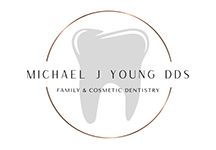 You may have been told by your dentist at some point that it looks like you have been grinding your teeth. Your dentist may have even recommended that you stop grinding your teeth. Likely they helped pinpoint a cause for the habitual grinding of your teeth (also known as bruxism) in an effort to help you stop. If you are asleep when you do it, are you that worried about grinding your teeth? Should you be? The short answer is yes. Teeth grinding can weaken your teeth and increase your risks for tooth decay and gum disease. Habitual teeth grinding can also put a lot of strain on your jaw joints. Your dentist in Lafayette, LA is here to help you stop grinding your teeth and restore any areas of your smile already affected.
You may have been told by your dentist at some point that it looks like you have been grinding your teeth. Your dentist may have even recommended that you stop grinding your teeth. Likely they helped pinpoint a cause for the habitual grinding of your teeth (also known as bruxism) in an effort to help you stop. If you are asleep when you do it, are you that worried about grinding your teeth? Should you be? The short answer is yes. Teeth grinding can weaken your teeth and increase your risks for tooth decay and gum disease. Habitual teeth grinding can also put a lot of strain on your jaw joints. Your dentist in Lafayette, LA is here to help you stop grinding your teeth and restore any areas of your smile already affected.
Fractured Teeth
Teeth are incredibly hard. They are designed to withstand the wear and tear of biting and chewing. When teeth are clenched and ground against each other, it can cause some damage. While at first the damage may begin as microscopic cracks in the tooth’s surface, it can leave the teeth vulnerable to bigger problems. Tooth fractures, even tiny ones, can leave teeth susceptible to tooth decay and gum disease. If your dentist has told you that you grind your teeth, it is best to find a way to stop it before it continues to damage your teeth. In some cases, your dentist may recommend restoring teeth affected by bruxism.
Strain on Jaw
Grinding your teeth at night can cause you to wake up with a sore jaw or a headache. The temporomandibular joints (TMJ) can be put under too much strain, which can lead to TMJ disorder. TMJ disorder can be a painful condition where the jaw feels stiff, pops, clicks, and locks. Addressing bruxism may help reduce the strain on your jaw joints.
Do you grind your teeth?
The habitual grinding of teeth can be damaging to your smile. To schedule a consultation, call the office of Michael J. Young, DDS, in Lafayette, LA, at 337-237-6453. We proudly serve patients from Breaux Bridge, Broussard, Scott, Youngsville, and surrounding communities
